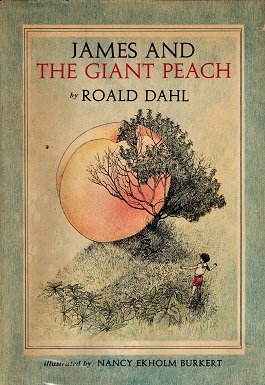William Faulkner
Explore the timeline of William Faulkner, an iconic American writer and Nobel laureate. Delve into the major milestones of his life, from his birth in Mississippi and his groundbreaking works such as 'The Sound and the Fury' and 'As I Lay Dying', to winning the Nobel Prize in Literature. Discover the events that shaped Faulkner's illustrious career and his contributions to the literary world.
Birth of William Faulkner
William Cuthbert Faulkner was born on September 25, 1897, in New Albany, Mississippi, USA. He is considered one of the most important writers of the 20th century, known for his complex novels depicting the Southern United States and his innovative narrative techniques. Faulkner's work reflects the history and culture of the South, where he spent most of his life, particularly in Oxford, Mississippi.
Publication of 'The Sound and the Fury'
'The Sound and the Fury,' William Faulkner's fourth novel, was published on February 25, 1929. This novel is one of Faulkner's most innovative and celebrated works, using a variety of narrative styles and techniques. The story is centered around the Compson family, former Southern aristocrats struggling to deal with the dissolution of their family and its reputation. The novel is noted for its unique narrative structure and its exploration of themes such as time, memory, and the downfall of the Old South.
Publication of 'Sanctuary'
William Faulkner's novel 'Sanctuary' was published in 1931. The book is known for its controversial and sensational content, exploring themes of violence and corruption in the South. 'Sanctuary' was a commercial success, which was partly due to its lurid subject matter that shocked readers at the time. This novel marked a departure from Faulkner's earlier works and is considered one of his most shocking and daring stories.
Publication of 'Light in August'
'Light in August,' one of William Faulkner's significant novels, was published in 1932. This novel combines several narrative threads to examine themes of race, religion, and identity in the American South. The novel is famous for its exploration of the character Joe Christmas, who is of uncertain racial heritage and is caught in a complex web of identity and alienation. The novel is a profound exploration of the human condition and is a testament to Faulkner's literary genius.
Faulkner's Screenwriting for Hollywood
In the early 1940s, William Faulkner began working in Hollywood as a screenwriter to supplement his income during World War II. Faulkner wrote or contributed to the screenplays of several films, including 'To Have and Have Not' and 'The Big Sleep,' both of which were directed by Howard Hawks and starred Humphrey Bogart. Faulkner's time in Hollywood was a significant period that influenced some of his later work, offering him a different perspective on storytelling.
Publication of 'Intruder in the Dust'
In 1949, 'Intruder in the Dust' was published, a novel by William Faulkner focusing on racial tensions in the American South. The book tells the story of a black man accused of murder and the young white boy who endeavors to get him acquitted. This work revisits themes Faulkner often examined, such as justice and the complex social dynamics of race in the South. It was an important novel that added to discussions on race and justice in America.
Awarded the Nobel Prize in Literature
William Faulkner was awarded the Nobel Prize in Literature on December 10, 1949. This prestigious award was given in recognition of Faulkner's powerful and artistically unique contribution to the modern American novel, especially his profound ability to depict human conflicts and emotions. His acceptance speech is one of the most renowned in Nobel history, where he spoke about the writer's duty to remind humanity of its capacity for endurance and courage.
Publication of 'Requiem for a Nun'
'Requiem for a Nun,' published in 1951, is a sequel to Faulkner's earlier novel 'Sanctuary'. This novel combines dramatic dialogue with narrative sections, reflecting Faulkner's experimentation with narrative form. The novel focuses on themes of sin, repentance, and redemption, and is renowned for its famed line, 'The past is never dead. It's not even past.' This novel holds a significant place in Faulkner's exploration of human guilt and redemption.
Awarded the Legion of Honour
On September 19, 1956, William Faulkner received the French Legion of Honour. This award was given in recognition of his significant contributions to literature and his influence on French and international writers. Faulkner's works are acclaimed for their experimental style and profound themes, which resonated with readers worldwide, including in France where his novels were widely celebrated.
Death of William Faulkner
William Faulkner passed away on July 6, 1962, in Byhalia, Mississippi. He left behind a remarkable legacy as a defining voice in American literature. During his lifetime, Faulkner published numerous novels, short stories, and plays, becoming known for his deep exploration of Southern culture and his innovative narrative techniques. Faulkner's death marked the end of an era, but his work continues to influence writers and readers around the world.
Frequently asked questions about William Faulkner
Discover commonly asked questions regarding William Faulkner. If there are any questions we may have overlooked, please let us know.
When did William Faulkner pass away?
What are some of William Faulkner's most famous works?
When was William Faulkner born?
When did William Faulkner win the Nobel Prize in Literature?
Related timelines
More timelines connected to William Faulkner







